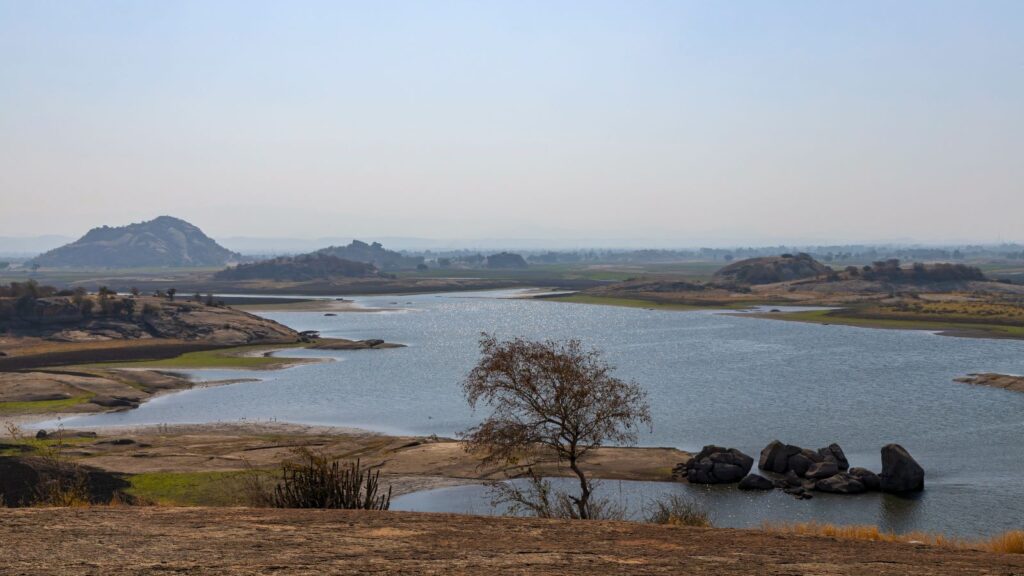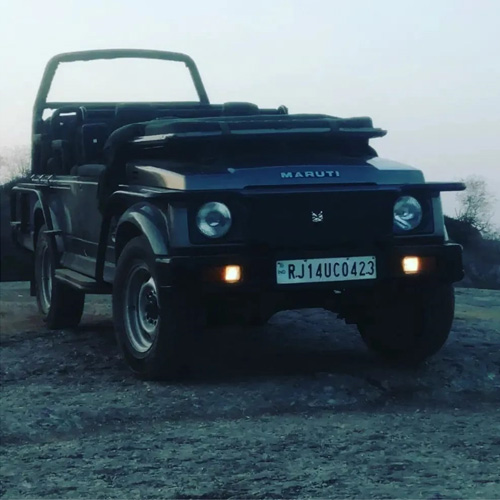Frequently Asked Questions - FAQ
Welcome to the FAQ page for Jawai! Here, you’ll find all the essential information you need to plan your trip to this unique wildlife destination. Whether you’re curious about the best time to visit, how to book a leopard safari, or what accommodations are available, we’ve got you covered. From Jawai’s famous leopard sightings to the charming local culture, this guide answers all your frequently asked questions, ensuring a smooth and memorable visit. Read on to discover everything you need to know about exploring Jawai and making the most of your wildlife adventure!
Where is Jawai located?
Jawai is located in the Pali district of Rajasthan, India, specifically in Tehsil Sumerpur. It is positioned approximately 150 kilometers from Jodhpur and 175 kilometers from Udaipur, making it conveniently accessible by road and rail. Whether you are traveling by train, bus, or private vehicle, the journey to Jawai offers scenic views and an introduction to Rajasthan’s rugged beauty. Jawai’s proximity to these major cities makes it a popular destination for both domestic and international travelers seeking a unique wildlife experience.
What is Jawai famous for?
Jawai is most renowned for its thriving leopard population and its unique ecosystem, which allows these big cats to coexist peacefully with humans. It is one of the rare places where leopards, often elusive and solitary creatures, have adapted to living in close proximity to local communities without any significant conflict. In addition to the leopards, Jawai is known for its stunning landscapes, including the sprawling Jawai Bandh (dam), a man-made marvel providing water to surrounding areas. The rocky hills and lush vegetation offer the perfect backdrop for wildlife enthusiasts and photographers. Additionally, Jawai is a haven for migratory birds, making it a fantastic destination for birdwatchers. The region’s cultural heritage, including the local Rabari community, adds to the richness of the experience, making Jawai not just a wildlife destination but also a cultural journey.
When is the best time to visit Jawai?
The best time to visit Jawai is from October to March, when the weather is most pleasant. During this period, the temperatures are moderate, and the region enjoys a cool breeze, making it ideal for outdoor activities like safaris and nature walks. The winter months are particularly suitable for wildlife viewing, as the animals are more active during the day due to the comfortable temperatures. However, Jawai can be visited year-round. In the summer months (April to June), temperatures can soar, but early mornings and late evenings offer a respite, with animals being more active during cooler hours. The monsoon season (July to September) brings lush greenery and a different charm to Jawai, though certain activities may be limited due to the rains.
How can I book a leopard safari in Jawai?
Leopard safaris in Jawai can be easily booked through the resort or hotel where you are staying. Many of the resorts and camps in Jawai offer safari packages that include transportation, a knowledgeable guide, and sometimes even photography tips to help you capture the perfect leopard sighting. Booking through the accommodation ensures you get a fair price and access to experienced guides who are familiar with the local wildlife. It is highly recommended to pre-book your safari, especially during peak tourist seasons (October to March), as spots can fill up quickly. For a more personalized experience, private safaris are also available.
How much does a jeep safari cost?
Jeep safaris in Jawai typically cost between ₹3,000 to ₹7,000 per trip, depending on the season, duration of the safari, and the services included. Prices may also vary based on whether the safari is for a small group or a private experience. The safaris are conducted in modified Gypsy Jeeps, which can accommodate 5 adults and 2 children comfortably. These safaris often last for about 2 to 3 hours, with the opportunity to see leopards, crocodiles, birds, and other wildlife in their natural habitat. Additional charges may apply for special services such as photography tours or private guides.
Are leopards visible during the day?
Leopards in Jawai are primarily nocturnal, meaning they are most active during early mornings and late evenings when the temperatures are cooler. While leopards are not typically visible during the heat of the day, they are often spotted early at dawn or just before sunset when they venture out of their caves and rocky shelters to hunt or drink from nearby water sources. If you’re hoping to see these elusive big cats, the early morning and late evening safaris are your best chance to catch a glimpse of them in their natural environment.
What accommodation options are available in Jawai?
Jawai offers a variety of accommodation options that cater to different budgets and preferences. If you’re looking for luxury, there are premium resorts like Sujan Jawai, Cheetahgarh Resort, and Brij Pola that provide lavish experiences with world-class amenities, stunning views, and expert-guided safaris. For those seeking something more mid-range, Bagheera Bagh and Chandraprabha Resorts offer comfortable stays with personalized service and a closer connection to nature. For an authentic local experience, you can also opt for homestays, where you can stay with local families and immerse yourself in the Rajasthani way of life. Most accommodations offer activities like safaris, nature walks, and birdwatching tours, making them ideal bases for wildlife exploration.
What activities can I do in Jawai besides safaris?
While safaris are undoubtedly the highlight of any trip to Jawai, there are several other activities that can enrich your experience. Jawai’s landscapes are perfect for birdwatching, with a variety of migratory and resident birds populating the region, especially around the Jawai Bandh. Visitors can enjoy guided nature walks to explore the hills, riverbeds, and other natural sites. For those interested in culture and history, Jawai offers nearby temples such as Ranakpur Temple and Kumbhalgarh Fort, both of which are must-visit attractions. The rugged terrain of Jawai also makes it an excellent destination for photography enthusiasts, with numerous opportunities to capture both the wildlife and the stunning landscapes. Additionally, local village tours provide a chance to experience the lifestyle of the Rabari community, whose coexistence with wildlife is both fascinating and unique.
How do I get to Jawai?
Jawai is well-connected by various modes of transportation:
By Air: The nearest airports are in Jodhpur (150 km) and Udaipur (175 km). Both airports are well-connected to major cities like Delhi, Mumbai, and Jaipur, making them easily accessible for both domestic and international tourists. From the airport, you can take a taxi or private vehicle to reach Jawai.
By Train: Jawai Bandh Railway Station is the closest railhead, about 10 km from Jawai. It is connected to major cities like Mumbai, Delhi, and Jaipur, making it convenient for travelers coming by train. Alternatively, Falna Railway Station, located around 25 km from Jawai, offers more frequent services and is well-connected to various parts of Rajasthan.
By Road: Jawai is easily accessible by road, with well-maintained highways leading from nearby cities like Jodhpur, Udaipur, and Pali. Private taxis and buses regularly ply these routes, and the journey offers scenic views of Rajasthan’s rural landscape.
Is it safe to visit Jawai for wildlife tourism?
Yes, Jawai is considered to be a safe destination for wildlife tourism. The leopards in the area have learned to coexist peacefully with the local communities, particularly the Rabari tribe, who live in harmony with the wildlife. While the leopards are undoubtedly majestic and powerful animals, they generally do not pose a threat to humans as long as visitors follow the guidance of trained safari guides. Visitors are advised to respect the natural habitat, maintain a safe distance from wildlife, and follow the safety instructions provided by the guides to ensure a safe and enjoyable experience. As with any wildlife destination, it is always important to be mindful of your surroundings.
Can I visit Jawai on a day trip?
Although it is possible to visit Jawai on a day trip, it is highly recommended to stay for at least one or two nights to fully experience the region. The best wildlife sightings occur during early morning and late evening safaris, so staying overnight allows you to participate in both and maximize your chances of spotting leopards and other wildlife. Staying for a longer duration also gives you the opportunity to explore local culture, visit nearby attractions, and enjoy the peace and serenity of Jawai’s rural environment. For those with limited time, however, a day trip is still a rewarding experience, especially for those looking to enjoy the landscapes and wildlife on a shorter schedule.
What kind of food is available in Jawai?
Jawai offers a delightful range of authentic Rajasthani cuisine, including famous dishes such as Dal Bati Churma, Gatte ki Sabzi, and Ker Sangri. Most resorts and homestays serve freshly prepared, local meals that reflect the traditional flavors of Rajasthan. In nearby towns like Sumerpur and Sheoganj, you can find small dhaba-style eateries offering delicious local snacks, sweets, and meals. The food is often rich in spices and flavors, providing a true taste of Rajasthan’s culinary heritage. Whether you are staying in a luxury resort or a humble homestay, you’ll find the meals to be an integral part of your Jawai experience, often cooked with locally sourced ingredients that are fresh and full of flavor.
Jawai's Big Cats - Capturing Nature's Majesty

Are you a Safari Jeep Owner or Driver?
Connect with Us!
If you own or drive a Leopard Safari Gypsy, share your details with us on WhatsApp. Get featured on our portal at no cost!

